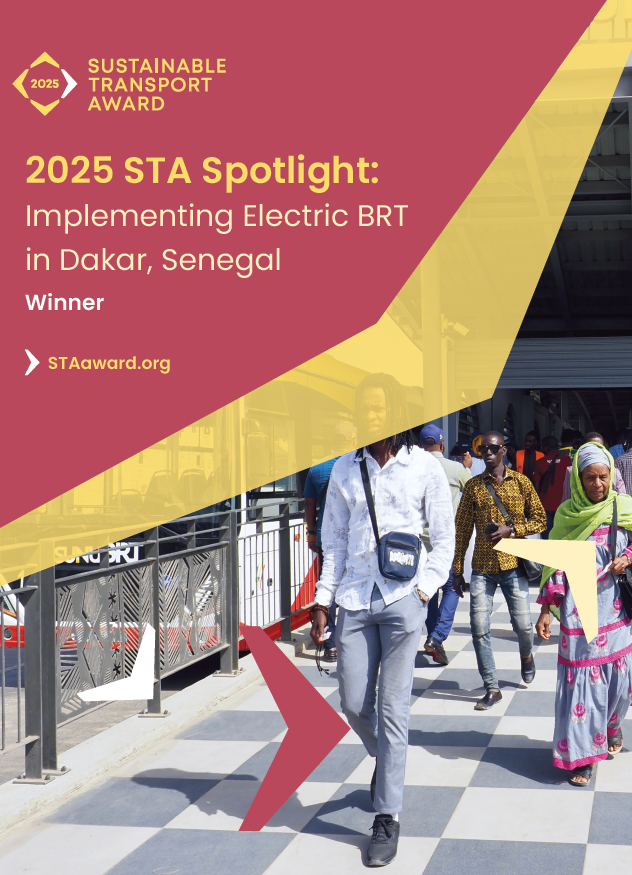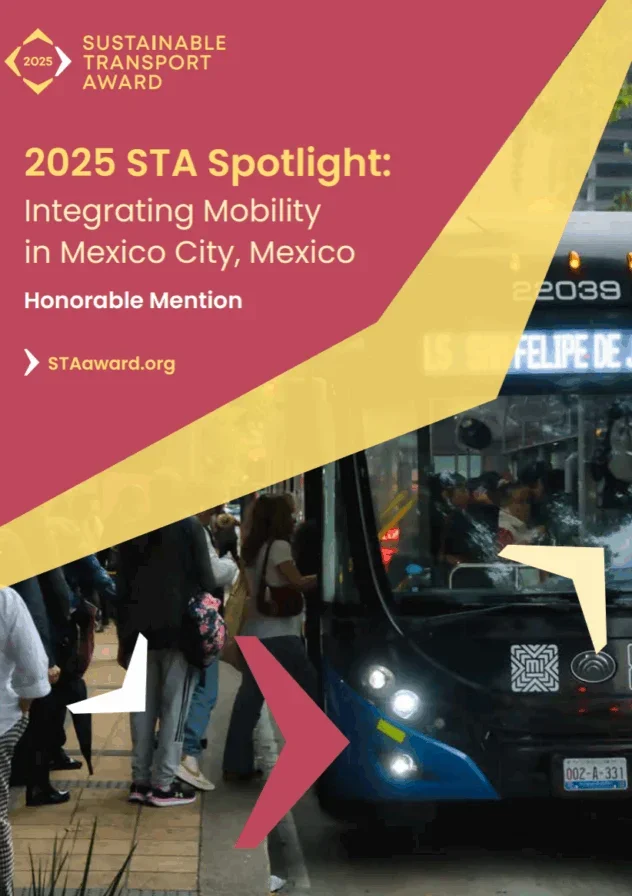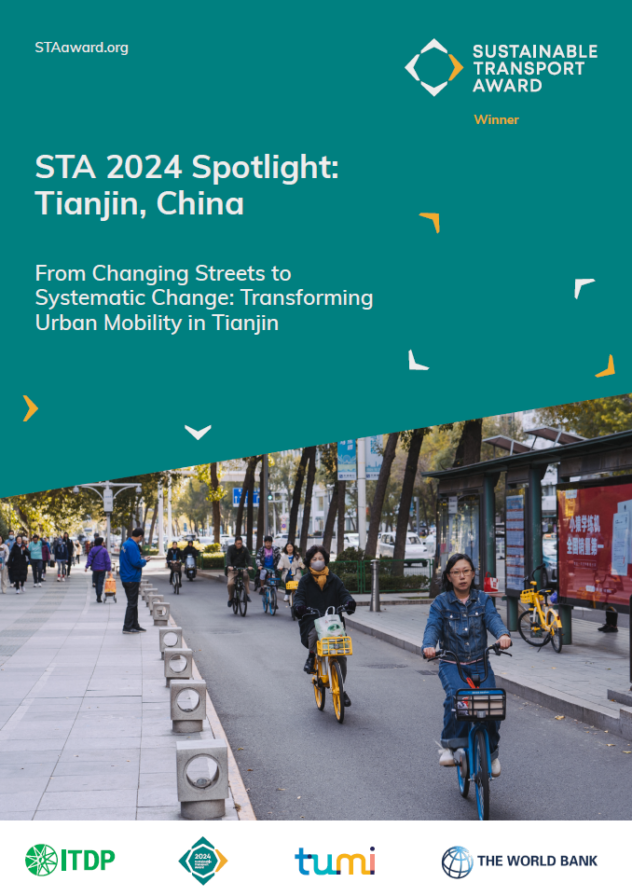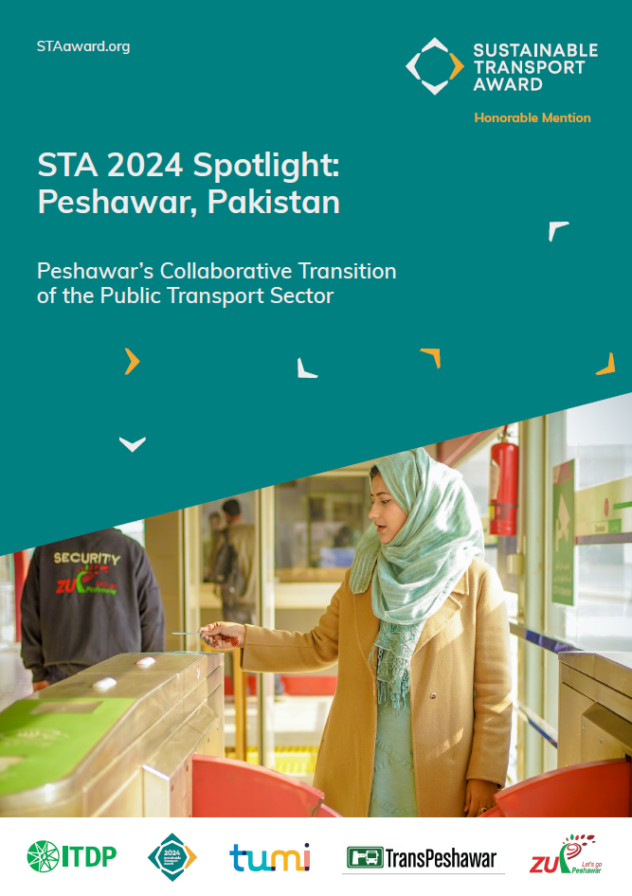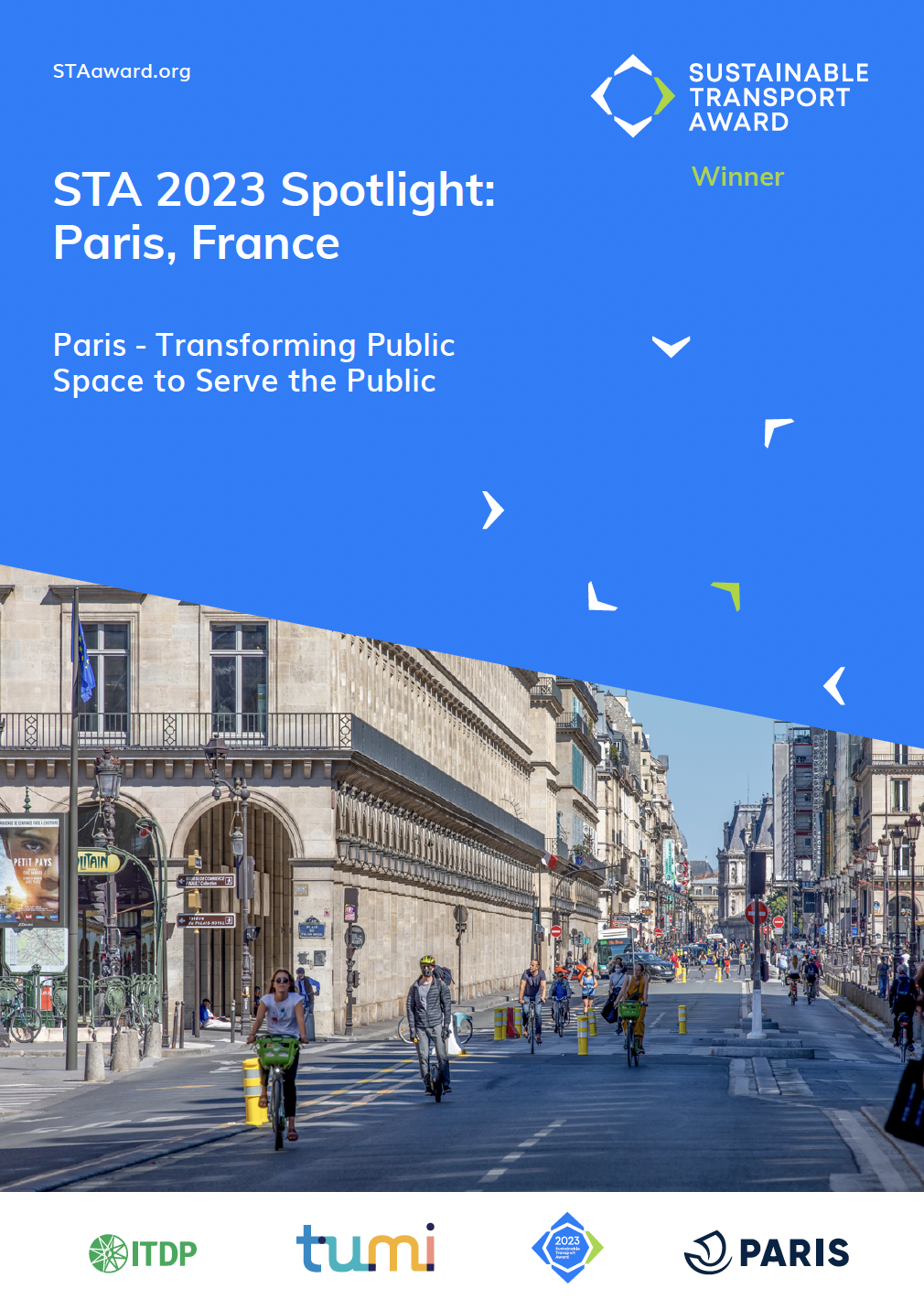Case Studies
Each year, ITDP conducts case studies of the Sustainable Transport Award Winners and Honorable Mentions to better understand the interventions and achievements that earned them recognition.
Dakar, Senegal (2025 Winner)
This STA Spotlight case study on Dakar, Senegal, the 2025 Sustainable Transport Award (STA) winner, highlights the city’s collaborative efforts to plan, build, and invest in public transport centered on zero-emission buses. In particular, Dakar launched its landmark all-electric BRT system in 2024 which spans over 18 kilometers, 23 stations, and hosts a fleet of more than 120 articulated all-electric buses. High-quality rapid transit systems, when combined with transit-oriented land use policies and electric vehicles, can offer cities crucial climate, economic, and social benefits. Dakar’s BRT is expected to serve 300,000 passengers a day and reduce journey times from 95 to 45 minutes, leading to significant time savings for users. In addition, the system is expected to help mitigate over 53,000 tonnes of CO2 emissions per year with the all-electric fleet.
Mexico City, Mexico (2025 Honorable Mention)
This STA Spotlight case study on the Mexico City, the 2025 Sustainable Transport Award (STA) honorable mention, highlights the city’s collaborative efforts to expand and integrate public transport, bus systems, and bikeshare networks to dramatically improve sustainable mobility access citywide. Mexico City, the capital and largest city in Mexico, faces enormous demand on its urban infrastructure due to a growing influx of people and increasing pressure on the city’s authorities for planning projects. In recent years, city agencies have been working to address these issues with a focus on a comprehensive Integrated Mobility strategy that aims improve operations and user experience across diverse transit networks.
Tianjin, China (2024 Winner)
This STA Spotlight case study on the City of Tianjin, China, the 2024 Sustainable Transport Award (STA) winner, highlights the city’s collaborative efforts to expand non-motorized transport and street infrastructure to dramatically improve walking, cycling, and public transit connections. As one of the country’s most populated cities, Tianjin is home to more than 13 million people and urgently needed to reshape its mobility systems to lower emissions, improve air quality, reduce congestion, and enhance well-being. Thus, the city’s significant investments into sustainable mobility infrastructure over the past few years has now made it a model for governments across China.
Peshawar, Pakistan (2024 Honorable Mention)
Peshawar was previously the recipient of a 2022 STA Honorable Mention for advancements in its Bus Rapid Transit (BRT) system, Zu Peshawar. Just two years later, they are once again being recognized for the Bus Industry Restructuring Program (BIRP), which has transformed the region’s transit system from a series of individual paratransit providers to a robust BRT service that caters to over 345,000 passengers a day. This transformation was made possible due to the involvement of various stakeholders across all phases of implementation, from former bus owners and drivers to community groups.
Paris, France (2023 Winner)
This case study report on the City of Paris, France, the 2023 Sustainable Transport Award (STA) winner, dives into the bold policies and actions the city took to redesign its streets, spurring a modal shift in urban transport to encourage more cycling and walking. Adjusting to the surge in active mobility triggered by the COVID-19 pandemic, in 2021-2022 Paris place an immense focus on activating low-cost, high-impact transport interventions to achieve to reduce emissions, improve air quality, and manage vehicle traffic. The city also worked to ensure its cycling and walking interventions were made equitable for women, children, and people with disabilities.
Bhubaneswar, India (2023 Honorable Mention)
This case study of Bhubaneswar and its transport agency can help inspire global cities, policymakers, and planners to rethink their transport systems, emphasizing sustainability, connectivity, inclusion, and workforce development. It also provides useful technical information and high-level lessons from Bhubaneswar’s mobility experiments to help others develop more tangible, forward-thinking transport solutions.
Bogotá, Colombia (2022 Winner)
This report is useful for urban planners, decision-makers, and advocates hoping to learn how Bogotá’s vision for equitable and sustainable urban mobility carried on through different political administrations and global crises. In particular, the case study examines how Bogotá ensured that its transport systems could recover from disruptions like the COVID-19 pandemic, while also building future resilience in anticipation of evolving climate and health challenges.
Peshawar, Pakistan (2022 Honorable Mention)
Since 2020, Zu Peshawar, the first Gold Standard BRT on the Indian Peninsula, has been moving over 250,000 passengers daily, providing access to the city for women, persons with disabilities and the youth. This case study, co-developed with TUMI and TransPeshwar, discusses the efforts of inclusive transport planning guided by strong leadership and policies, resulting in the city’s shift towards sustainable mobility.
Tartu, Estonia (2022 Honorable Mention)
Since 2012, the City of Tartu, Estonia has been implementing programs, infrastructure, and policy that transformed the city into a model for sustainable, accessible mobility based on data, feedback from residents, and ambitious climate goals. This case study, co-developed with TUMI and the City of Tartu, shows lessons learned from the approaches that the city utilized, turning setbacks of 2020 and 2021 into opportunities bolstering the city’s resilience and identity.

